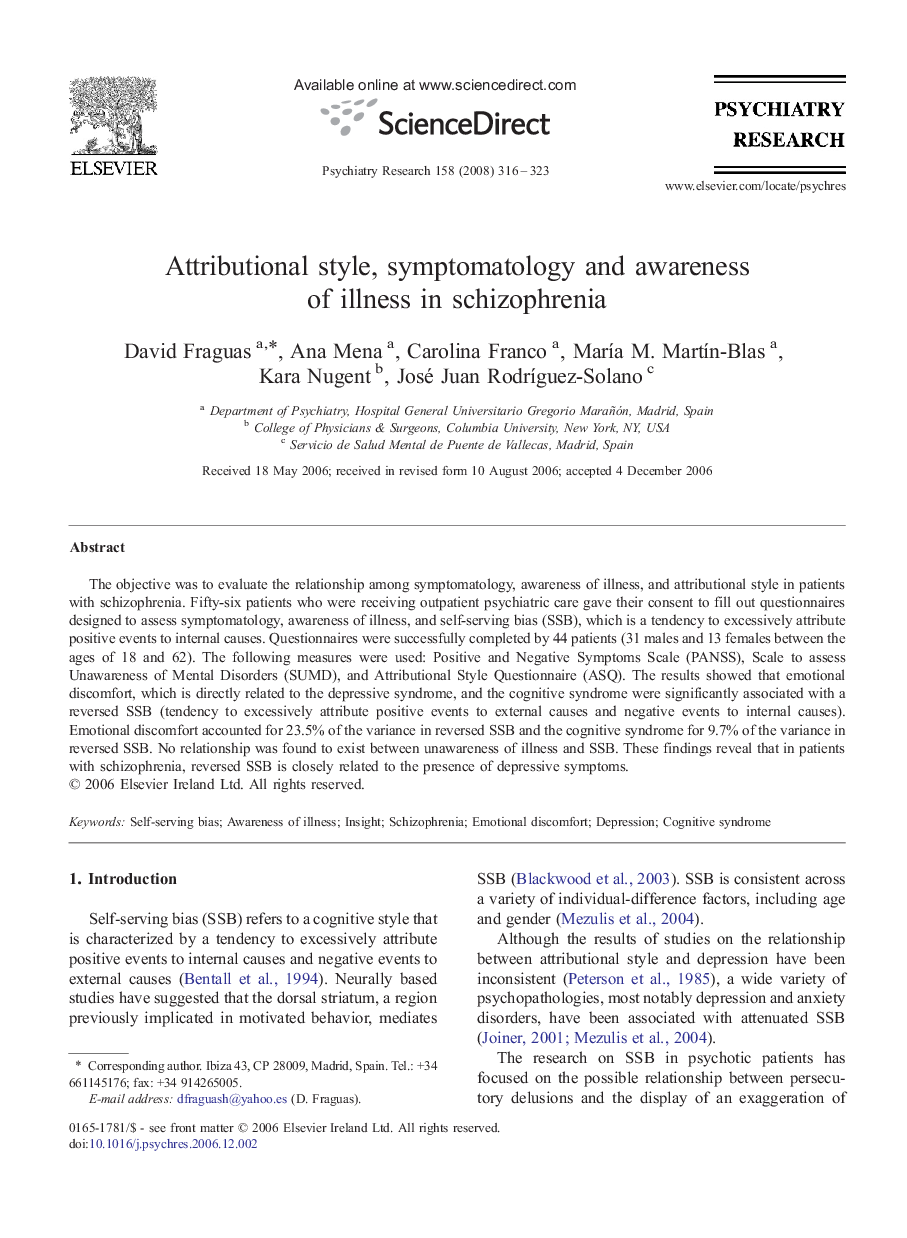| Article ID | Journal | Published Year | Pages | File Type |
|---|---|---|---|---|
| 332502 | Psychiatry Research | 2008 | 8 Pages |
The objective was to evaluate the relationship among symptomatology, awareness of illness, and attributional style in patients with schizophrenia. Fifty-six patients who were receiving outpatient psychiatric care gave their consent to fill out questionnaires designed to assess symptomatology, awareness of illness, and self-serving bias (SSB), which is a tendency to excessively attribute positive events to internal causes. Questionnaires were successfully completed by 44 patients (31 males and 13 females between the ages of 18 and 62). The following measures were used: Positive and Negative Symptoms Scale (PANSS), Scale to assess Unawareness of Mental Disorders (SUMD), and Attributional Style Questionnaire (ASQ). The results showed that emotional discomfort, which is directly related to the depressive syndrome, and the cognitive syndrome were significantly associated with a reversed SSB (tendency to excessively attribute positive events to external causes and negative events to internal causes). Emotional discomfort accounted for 23.5% of the variance in reversed SSB and the cognitive syndrome for 9.7% of the variance in reversed SSB. No relationship was found to exist between unawareness of illness and SSB. These findings reveal that in patients with schizophrenia, reversed SSB is closely related to the presence of depressive symptoms.
